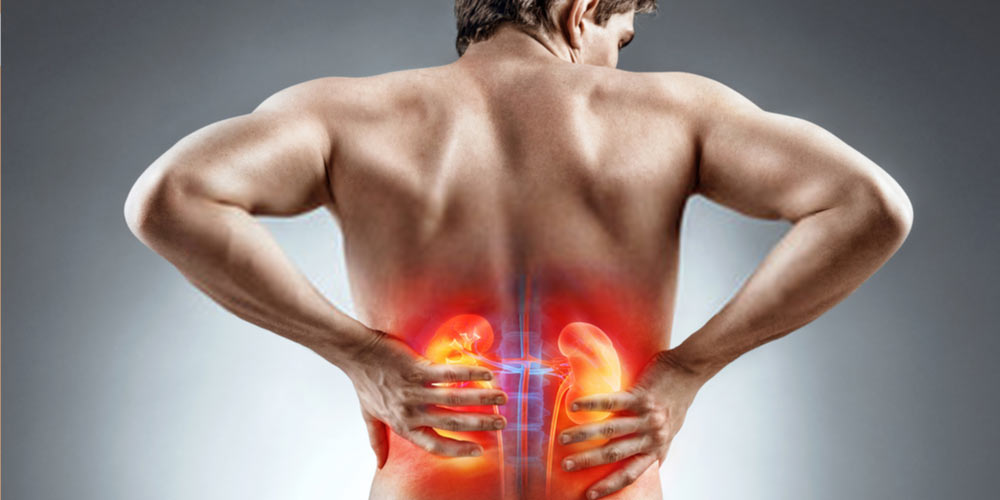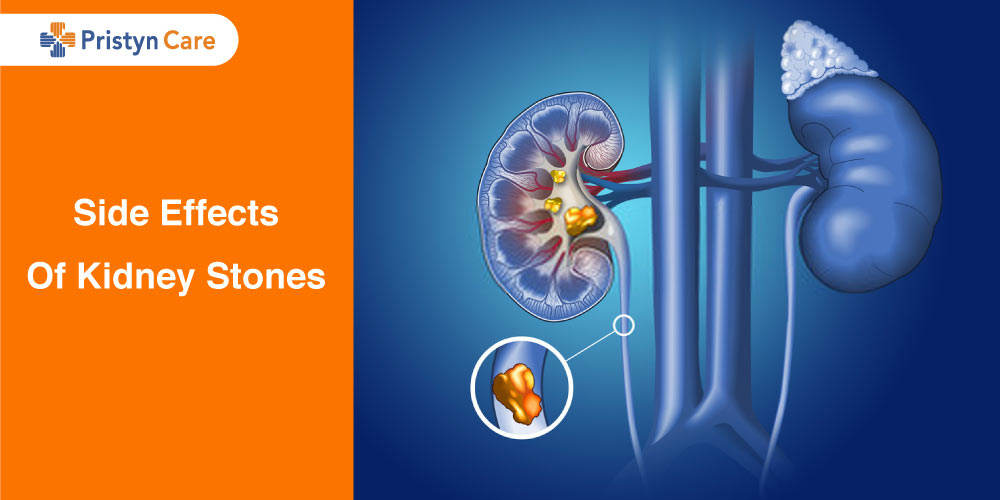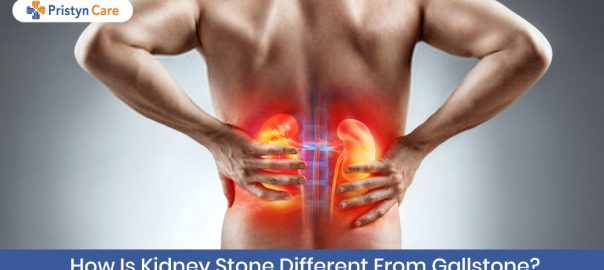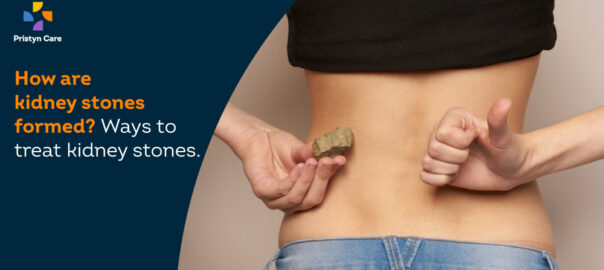![]() Views: 6,481
Views: 6,481
Side Effects Of Kidney Stones
Kidney stones or urinary stones are quite common in both men and women. Studies estimate that 1 in every 20 people around the world develops kidney stones at some point in their life.
Dedicated Support at Every Step!
Our Doctors are available 24 hours a day, 7 days a week to help you!
The cause of kidney stones in most cases is improper diet and dehydration. The major function of the kidneys is eliminating the wastes and extra fluids from the body through urine. Excess wastes, in the absence of enough fluids, collect and crystallize to form kidney stones.
Table of Contents
Side effects of kidney stones
Every ailment has some troubles and side effects associated with it. This is true in the case of kidney stones as well. The side effects of kidney stones can be both mild or severe. Some of the common side effects associated with kidney stones are described below.

Excruciating pain
Kidney stone pain is also known as renal colic. It is one of the most severe pains one can imagine. Kidney stones cause pain when they move around in the urinary tract. This pain arises in the lower back, side of the abdomen, or below the ribs. Renal colic can become even worse when the stones reach the ureter and block it. The ureter then tries to push the stone out by contracting itself, which in turn, aggravates the pain even more.
Discomforts during urination
Kidney stones are known to cause pain and burning sensation while urinating. This pain is quite similar to the one experienced in a urinary tract infection. It is also known as dysuria. You may also notice red or brown-colored urine due to the presence of blood in the urine. This is called hematuria.
Frequent urge to urinate
The urge to urinate is much more frequent in people with kidney stones. This usually happens when the kidney stone travels to the lower urinary tract. The stone may also get stuck in the ureter and obstruct the flow of urine. Due to this, you may not be able to empty your bladder in one go.
Nausea and vomiting
Kidney stones can cause nausea and vomiting, especially during morning hours. This happens when the kidney stones trigger the nerves in the gastrointestinal tract. This may upset your stomach and make you feel nauseous. Moreover, this can also be in response to the intense pain caused due to kidney stones.
These are some of the moderate side effects of kidney stones. However, kidney stones should not be left untreated. Kidney stones have a tendency to worsen over time and can lead to even more severe side effects.
The following are some of the serious side effects of kidney stones.
Urinary Tract Infections
Kidney stones can block the ureters and make them narrower. Obstructed ureters may result in a build-up of urine and put extra strain on the kidneys. This build-up of urine in the urinary tract can lead to urinary tract infections.
Kidney Infections
The stones in the kidney are prone to infections. If the stones get infected, they can also infect the kidneys. The major symptom of a kidney infection is high fever with chills. A kidney infection is an emergency situation and can also have life-threatening implications.
Damage to the kidney and kidney failure
In rare cases, large kidney stones can damage the kidney and may even lead to kidney failure. The more worrisome part is that this damage mostly occurs without any symptoms, and this makes the situation even worse.
No Cost EMI, Hassle-free Insurance Approval
What can you do to prevent these side effects of kidney stones?

Now that you’ve seen how serious the side effects of kidney stones can be, you must be wondering what can be done to prevent and alleviate these side effects.
Well, the first and foremost thing to remember is to consult a specialist doctor as soon as the symptoms of kidney stones start surfacing.
Medical help is a must for kidney stones
Your doctor will assess the size of your kidney stone and its severity and then prescribe suitable medicines to facilitate the passage through the urinary tract. Taking medicines regularly works successfully in most cases of small and medium-size kidney stones (less than or up to 5mm in size).
Healthy dietary changes
- In addition to medications, you must also monitor your diet. You should stay hydrated at all times. Drink about 8-9 glasses of water and healthy juices.
- Unsweetened cranberry juice is one of the most effective remedies for kidney stones. Also, increase the intake of citrus fruits, calcium-rich foods, and foods rich in fibers.
- The banana stem can be very effective in relieving the symptoms of kidney stones. Limit your oxalate and sodium intake to prevent the formation of new stones. (Also Read: Foods to avoid with kidney stones)
Regular exercise and yoga
- Moderate exercise and yoga are very helpful in the condition. Mild exercise can prevent salts from sticking to the kidney stones, thereby preventing them from growing larger.
- Exercise can also aid the passage of stones. Similarly, Yoga poses like Ushtrasana, Uttanapadasana, Bhujangasana, etc. can reduce the pain and symptoms of kidney stones and also remove the stones in some cases.
Surgical treatment for kidney stones
If none of the above methods of kidney stone removal works, your doctor may suggest surgery. Don’t sweat much over it as advancements in the field of medicine and technology have made kidney stone surgeries minimally invasive.
Shock wave lithotripsy, laser ureteroscopy, and laparoscopic surgeries are the most advanced and widely used techniques for kidney stone treatment These procedures require minimal access to the body and do not inflict any pain. You can actually get rid of kidney stones within a day only.
If you are experiencing the signs and symptoms kidney stones, contact us at Pristyn Care. We will book an appointment for you and you can consult our urologists for detailed consultation.
Also Read:
FAQs
Back pain caused by kidney stones is usually experienced in the lower back and sides. The pain comes and goes in waves. For a complete diagnosis, you should your urologist.
To avoid kidney stone side effects:
- Stay hydrated and drink plenty of fluids
- Include citrus foods in your regular diet
- Avoid greasy, junk, and processed foods
- Do not consume alcohol or smoke cigarettes
And most importantly, consult an experienced urologist.Get proper and timely treatment for kidney stones.
A person may have to rush to the emergency room for kidney stones if they experience the following symptoms:
- High fever
- Severe and prolonged pain
- Nausea and vomiting
If the kidney stone treatment is delayed for a long time, the kidneys can lose their functioning permanently. This condition is known as chronic kidney disease.
Kidney stones are known to be associated with an increased risk of cancer in the kidneys (papillary renal cell carcinoma and upper tract urolethial carcinoma). Thus, you must not ignore kidney stone symptoms and get medical attention at the earliest.











